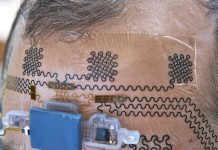
The COVID-19 pandemic has meant countless women are looking beyond harder-to-access, traditional postpartum depression (PPD) treatment options—like psychiatry and medication—and finding that physical activity could be key.
In a new study from Western University, researchers found brisk walking—as little as 15 minutes a day—may be the answer for many women struggling with PPD, though some severe cases may still require traditional medical care.
Different from “baby blues,” PPD can cause severe mood swings, exhaustion, and even a sense of hopelessness.
About 23% of new mothers in Canada experience some of these symptoms, while recent studies in Europe and Asia indicate this number has increased to nearly 30% during the COVID-19 pandemic.
In the study, the team analyzed data from five research projects involving 242 participants.
They found walking resulted in clinically strong reductions in PPD symptoms and these improvements remained even three months after the mothers stopped their walking programs.
The team says there are many long-standing barriers for accessing treatment, especially for mental health, including social stigma, marginalization and discrimination of racialized communities; and wait times and the ongoing global pandemic has only worsened the situation.
Walking provides a treatment that circumvents many of these barriers. There could not be a more relevant time for an accessible route to mental health treatment.
They recommend women walk at a “moderate-intensity” 90 to 120 minutes per week to reduce PPD symptoms.
If you care about depression, please read studies about long-term use of depression drug may cause addiction and findings of single dose of this psychedelic drug may reduce depression, anxiety for years.
For more information about depression treatment and prevention, please see recent studies about long-term use of depression drug may increase risk of type 2 diabetes and results showing that this therapy could benefit people with depression, chronic pain.
The study is published in the Journal of Women’s Health. One author of the study is Veronica Pentland.
Copyright © 2021 Knowridge Science Report. All rights reserved.



